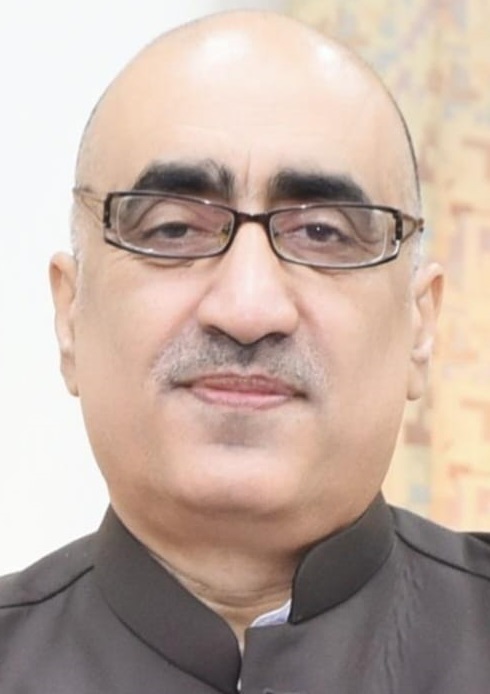Dr Liaqat Ali
“The art of being wise is knowing what to overlook.”
Empires rarely show interest in coexisting within an international system – they aspire instead to become the system itself. In today’s volatile global landscape, diplomacy demands more than rigid policy; it requires nuanced interpretation, cultural sensitivity, and the ability to read between the lines. Nowhere is this more evident than in the rising tensions between the United States and Iran in the Persian Gulf region. As history has shown, when diplomacy collapses, the machinery of war begins to turn.
It is expected that the United States’ strategic think tanks have assessed the multilayered interests at play in the region. These institutions often shape policy directions, but wisdom sometimes lies not in knowing everything, but in understanding what must be consciously overlooked. Unfortunately, many of today’s think tanks have become trapped in narrow, self-serving visions – mirroring the influence of corporate lobbies and bureaucratic inertia. When intellectual inquiry is influenced by donors and ideological bias, it risks becoming a reflection of preference rather than of reality.
Iran is not just a nation-state; it is a civilization that once commanded an empire spanning 5,000 years. This enduring history has instilled in the Iranian psyche a deep sense of pride, tradition, and cultural distinction. The West’s attempts to coerce Iran through pressure, isolation, or rhetoric have consistently backfired. A more effective diplomatic route would be to engage the Iranian nation with dignity – inviting them to the negotiation table through mutual respect rather than ultimatums.
Iranian governance, whether under a monarchy or the current theocratic model, has always been guided by an intrinsic code of honor. The key to constructive engagement with Iran lies in recognizing its cultural and religious foundations. Notably, Supreme Leader Ayatollah Ali Khamenei’s fatwa against the development and use of nuclear weapons remains a binding theological verdict within Iran’s ruling structure. For any shift in this stance, the repercussions would not only be political but spiritual – shaking the credibility of the Guardian Council and the broader Shia religious establishment.
For meaningful progress, a multi-party dialogue must be initiated. This should include Iran, neighboring countries such as Pakistan, Iraq, and Gulf Arab states, along with global powers like China, Russia, the United States, and key European allies. Respect for cultural lineage also plays a vital role in diplomacy. For instance, Bilawal Bhutto Zardari, given his maternal heritage connected to Iran, can serve as a symbolic bridge.
Shared cultural and theological roots – such as the strong ties between Iran’s Qom and Iraq’s Najaf seminaries – offer untapped potential for fostering regional understanding. The looming specter of conflict in the Gulf could plunge the region into long-term instability, with consequences echoing far beyond the Middle East. We have seen empires rise and fall, but neighbors remain. If the region continues to be driven by distrust and historical antagonism, the proxies of today will become the perpetual conflicts of tomorrow.
Lastly, there is an urgent need to replace hegemonic mindsets with humility and dialogue. The old Persian proverb ‘Pidar-e-ma Sultan bood’, means, ‘Our forefathers were kings’ – captures the dangerous delusion of inherited supremacy. Instead, the region must embrace soft power diplomacy: the ability to influence through attraction rather than coercion. This can be achieved through cultural exchange, education, science, and public engagement.
The path to peace is neither paved with pride nor powered by missiles. It lies in empathy, understanding, and diplomacy rooted in mutual respect. The world must choose dialogue – not dominance.
The writer is a clinician, medical educationist and researcher. He is working as a professor of urology at the Institute of Kidney Diseases (IKD), Hayatabad Medical Complex (HMC), Peshawar. He can be reached at: liaqatikd@gmail.com.
Related Posts






Comments